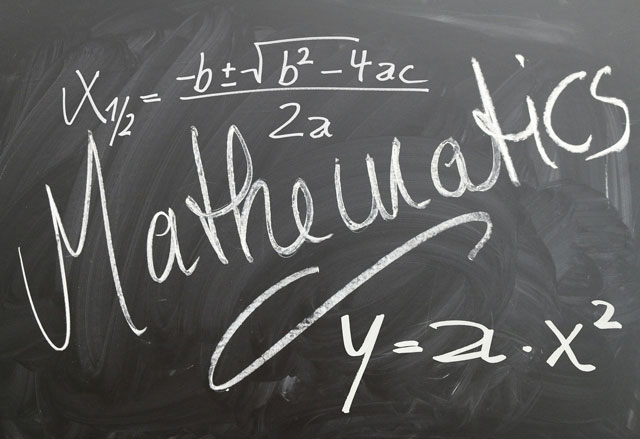
A 17-year-old from Somerset College in the Western Cape has achieved what is being regarded as the highest maths mark in the world.
Dario Trinchero scored 100% for maths in the International Cambridge AS levels. He wrote the exams in grade 11.
According to the school’s executive head, Meg Fargher, thousands of students across the globe write the AS levels, including many South Africans. A handful got 100% for the 2015 exams, but Trinchero’s accolade of being “first in the world” was because of the “quality of his answers and the depth of his answers”.
“It feels a little bit unbelievable, but I guess I’m altogether very happy about it,” Trinchero said.
“I could say that maths, out of all my subjects, comes easiest to me. But it’s not because I think that I am inherently gifted. I think it’s because I am so passionate about it.”
He said he thinks about maths and science “a heck of a lot”.
“When one is incredibly passionate about something, you tend to be thinking about various problems all the time, you tend to do extra reading, whether or not you are trying to do it in order to improve your maths.”
He has already started applying to universities around the globe to study theoretical physics next year.
“Obliviously based in South Africa, we don’t necessarily have the best physics universities worldwide … but when it comes to South Africa, I think UCT would be the best one to study physics at.”
There was a possibility he would specialise in quantum physics.
“Primarily my interests lie in computer science and quantum physics, so the hope is that I can go to some or other quantum physics institution, like Cern in Switzerland and do something related to quantum or particle physics.”
Cern, the European Organisation for Nuclear Research, operates the Large Hadron Collider. It is also the birthplace of the World Wide Web.
Trinchero said that he “pretty much” studies independently, but credits his parents with starting him off on the path of maths and science.
His father lectures machine design at the engineering department at Stellenbosch University, and his mother teaches grade 3.
“My father is probably the person that got me interested in mathematics and science when I was really small in the first place. Without his influence I probably would not have been nearly as passionate about either of them,” Trinchero said.
“He mostly told me about interesting mathematical concepts, particularly science concepts and I think the maths was more a by-product of the fact that I like science so much.
“My mother is mathematically inclined, but she does encourage me to work hard at the things that I enjoy, to go in the direction that I want to.”
Trinchero is currently busy with the second phase of his A levels. The A levels can be broken down into two components — the AS and the A2 component.
Fargher said Trinchero got in the 90s for physics and computer science, and was the top performer in South Africa in chemistry.
“We are proud of him, but we are also proud of the country.”
South Africa was often placed last of all countries in maths and science education.
“We do have schools that are teaching to the highest global standards, and this is a counter-argument to claims that we are bad,” she said.
“He is a young South African man who had applied himself and worked hard — and his teachers work hard as well, and are energised by teaching someone like him. He is a very special and brilliant student.”
Trinchero credited part of his enthusiasm to teachers who are passionate about their work. Having more like them could help create a positive shift in the country’s education system.
“That’s a shift that has to happen for more than just maths. It really just boils down to having the right teachers. I was lucky enough to have such teachers and I don’t think I would be nearly as passionate if I hadn’t had such teachers.”
He said he knew many people who did not like maths because they felt it was something they were going to be bad at.
“Maths is viewed as something that is hard and only for people that are incredibly intelligent. I think that that is quite a bad approach to start off with in the first place — maths has a little bit that everybody can appreciate and can understand,” Trinchero said.
Trinchero spends his free time reading and programming.
“I am quite active on a website called Project Euler, where you solve maths problems with a computer. I do that whenever I am intellectually bored, to pique my interest.”

